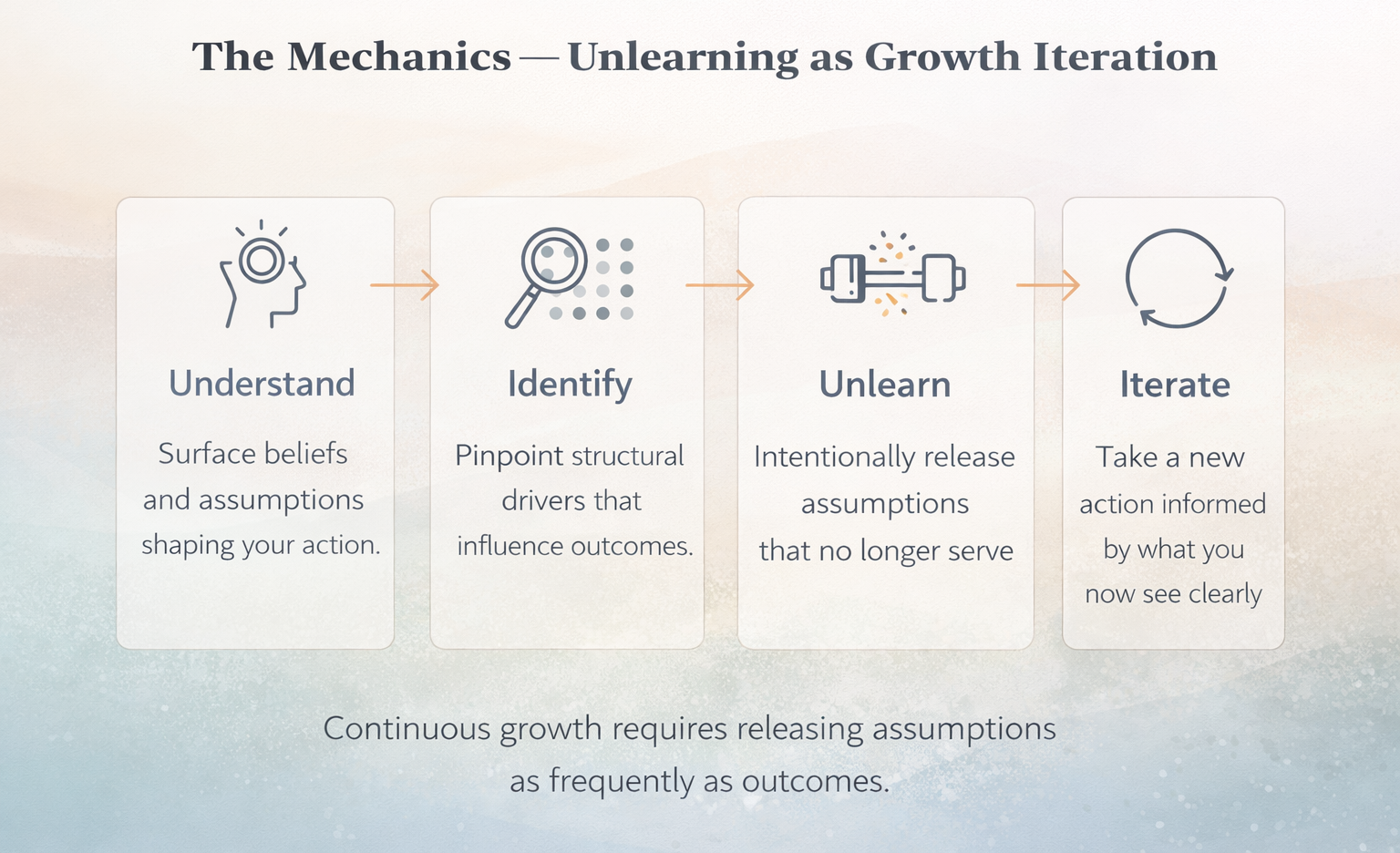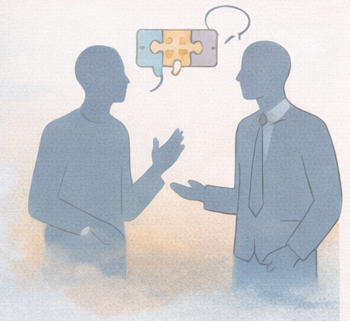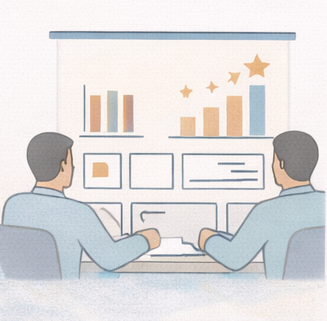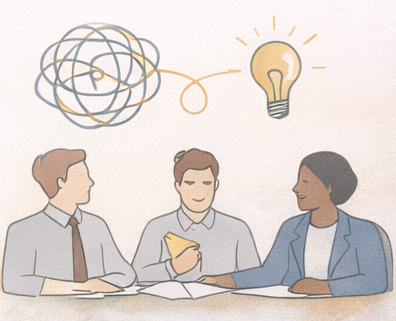Growth is not just about adding new things. It’s about letting go of what no longer serves. In Foundational Thinking, unlearning is not a one-time purge of old habits, it is a deliberate part of growth iteration, helping you refine your approach and expand what you can achieve with clarity and intention.
What Unlearning Really Is
A Methodical Practice, Not a Reset Button
Unlearning isn’t simply forgetting. It is the disciplined removal of invalid or old assumptions, habits, and internal models that hinder clarity and purposeful action. When paired with growth iteration, it becomes the lever by which progress moves beyond refinement into transformation.
Why Unlearning Matters
Why We Must Unlearn
Many routines and beliefs persist not because they are useful, but because they are familiar. Over time, this familiarity creates:
- Hidden assumptions that shape choices unconsciously.
- Reinforcement of ineffective patterns.
- Resistance to evidence that contradicts comfort.
Because Foundational Thinking begins with clarity and not habit, unlearning becomes essential.
How it Works
Understand → Identify → Unlearn → Iterate
Iteration is not repetition. It is informed adaptation. In practice, unlearning helps you make better iterations by realigning mental space, so the outcomes of each iteration are more reflective of real, current conditions rather than outdated assumptions.

Some Practical Prompts
Potential Questions to Guide Unlearning
Use these when you’re reviewing assumptions, behaviors, or strategies that feel “stuck”:
- What beliefs am I holding that I haven’t tested recently?
- Which habits persist because they feel familiar, not because they work?
- What assumptions would I challenge if I were reviewing this problem from scratch?
- What would I have to let go of to move forward with greater clarity?
Derived output:
Answering these questions should leave you with a revised set of assumptions — and a clearer direction for your next iteration.
Next Steps
Ready to Apply This Practice?
Unlearning is best done with intentional support and reflection. If you’re ready to run this practice on a real challenge — whether personal, strategic, or organizational, we can work through it together.



